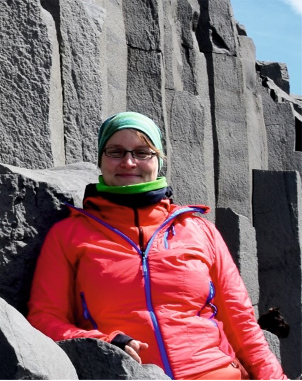Unlocking the potential of GPR for subsurface characterization by using full-waveform inversion
OR
SEG members, view the course for free!
Format: Virtual Webinar. 45 min. presentation followed by 15 min. Q&A
An optional post-lecture workshop will immediately follow each lecture for expanded Q&A and networking
Session 1, Wednesday, June 21, 2023, 9 am to 10 am US Central Time
Session 2, Tuesday, Sept 12, 2023, 9 am to 10 am Berlin Time
SEG Members Free Access Details
Two live sessions are completed. Please scroll down to watch the videos from the recordings below. SEG members, view the course for free!
Abstract
The heterogeneous near surface consists of the complex interactions between rock, soil, water, air, and living organisms, which determine the availability of life-sustaining resources such as water. This environment has been increasingly exploited for human needs, such as water supply, to store our waste and food production. To assess the environmental risk associated with such exploitation and exploration, the near surface has to be investigated and characterized with high resolution methods to enhance our understanding of e.g., hydrological and biogeochemical processes. In this presentation, we will focus on the potential of ground penetrating radar (GPR) to investigate small-scale processes and to enhanced the reconstruction of the subsurface properties. GPR can be applied to a wide range of applications to solve geological, hydrogeophysical, permafrost and civil engineering questions, to name just a few examples. Especially, the GPR full-waveform inversion (FWI) demonstrated in the last decade the benefits of an improved high-resolution method to assess geological, hydrological, and biogeochemical subsurface properties and related processes. This presentation will emphasize the recent developments and applications that we accomplished in the last years using novel GPR algorithms ranging from large-scale high resolution aquifer characterization, investigation of flow and transport processes and agricultural management. These examples demonstrate the significant role that GPR and the FWI can have to enhance our near surface characterization to support management decisions.

Your Instructor

Anja Klotzsche is since 2021 Professor in Hydrogeophysics at the Agrosphere Institute of the Forschungszentrum Juelich (FZJ) and the Institute of Geophysics and Meteorology of the University of Colonge. Anja’s research focuses on the development and application of ground penetrating radar (GPR) and Full-waveform inversion for various environments. Thereby, she combines theoretical method developments with applications to a solve geological, hydrogeological, and biogeological problems including flow in porous media, peatland processes, agricultural monitoring, Mars-analog soils, and more, through both borehole and surface GPR. Anja has been active within the Society of Exploration Geophysicists, serving as Publications Program Leader and Global Vice Chair of the Near Surface Technical Section, and within the American Geophysical Union, serving as the Early Career and European Representative of the Near Surface Focus Group. She has received seven awards including the first AGU Near-Surface Geophysics Early Career Achievement Award 2020. Anja earned her PhD in Hydrogeophysics at the RWTH Aachen in cooperation with the FZJ, her master’s in applied Geophysics (joint master at TU Delft, ETH Zurich and RWTH Aachen) and her bachelor’s in geophysics at the TUBA Freiberg.
